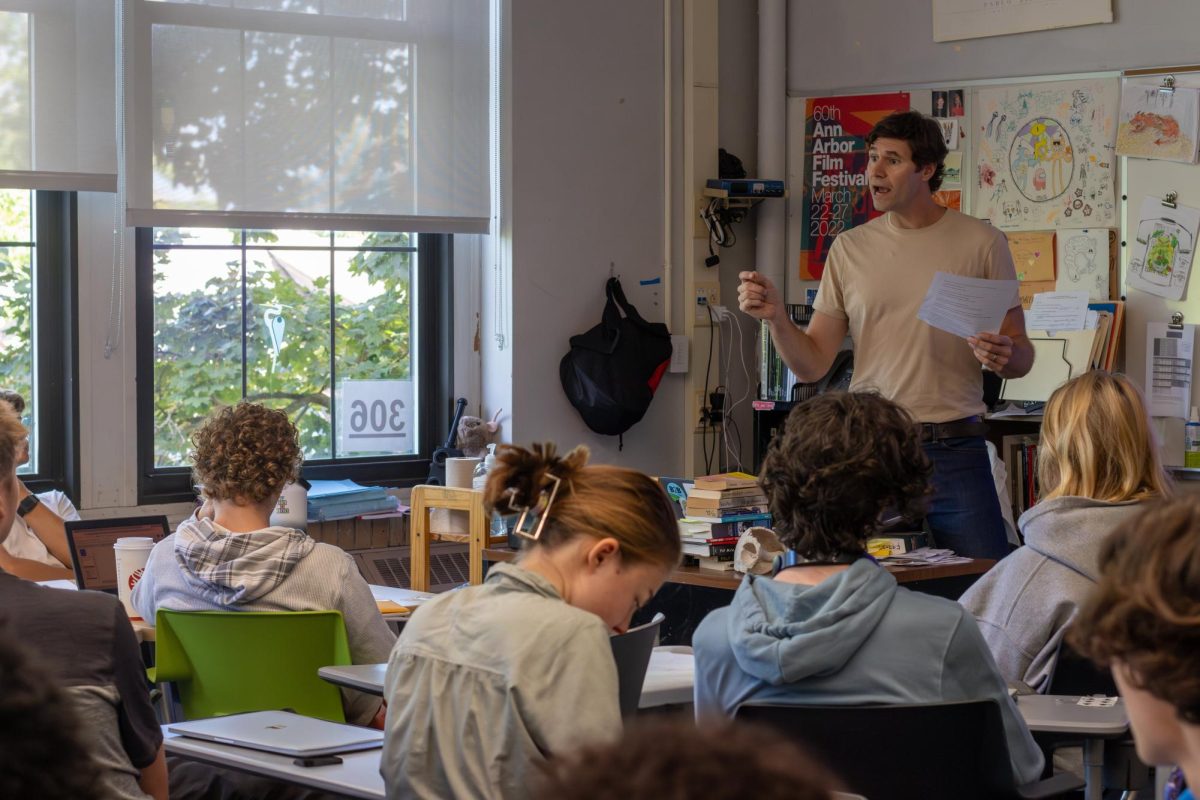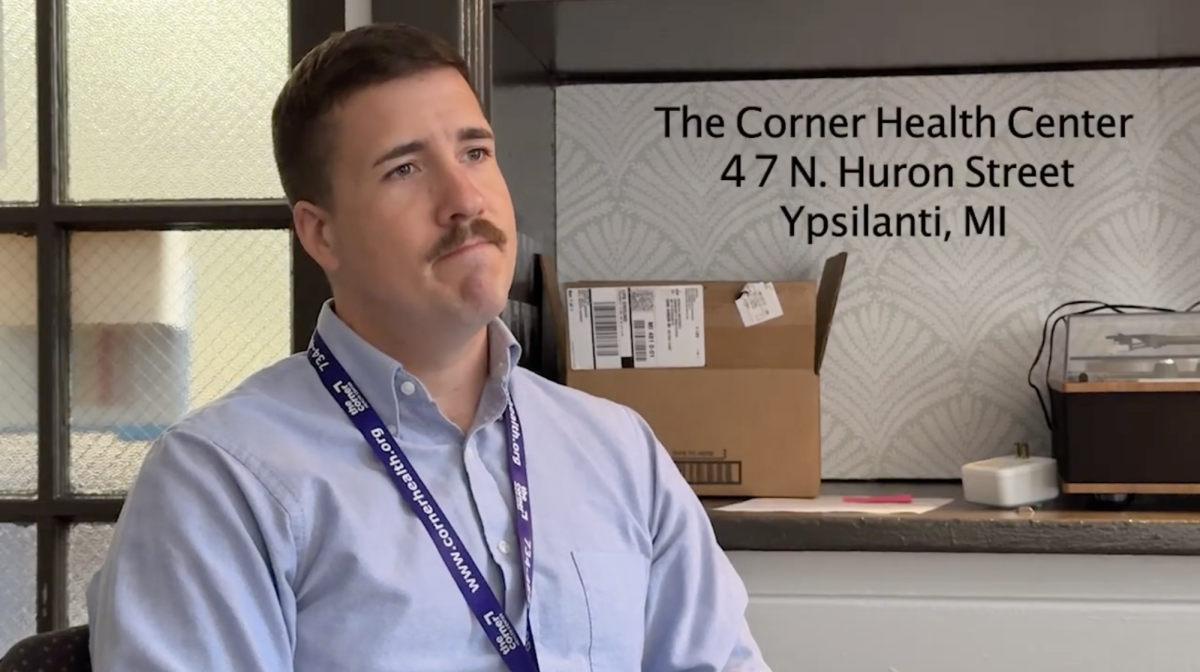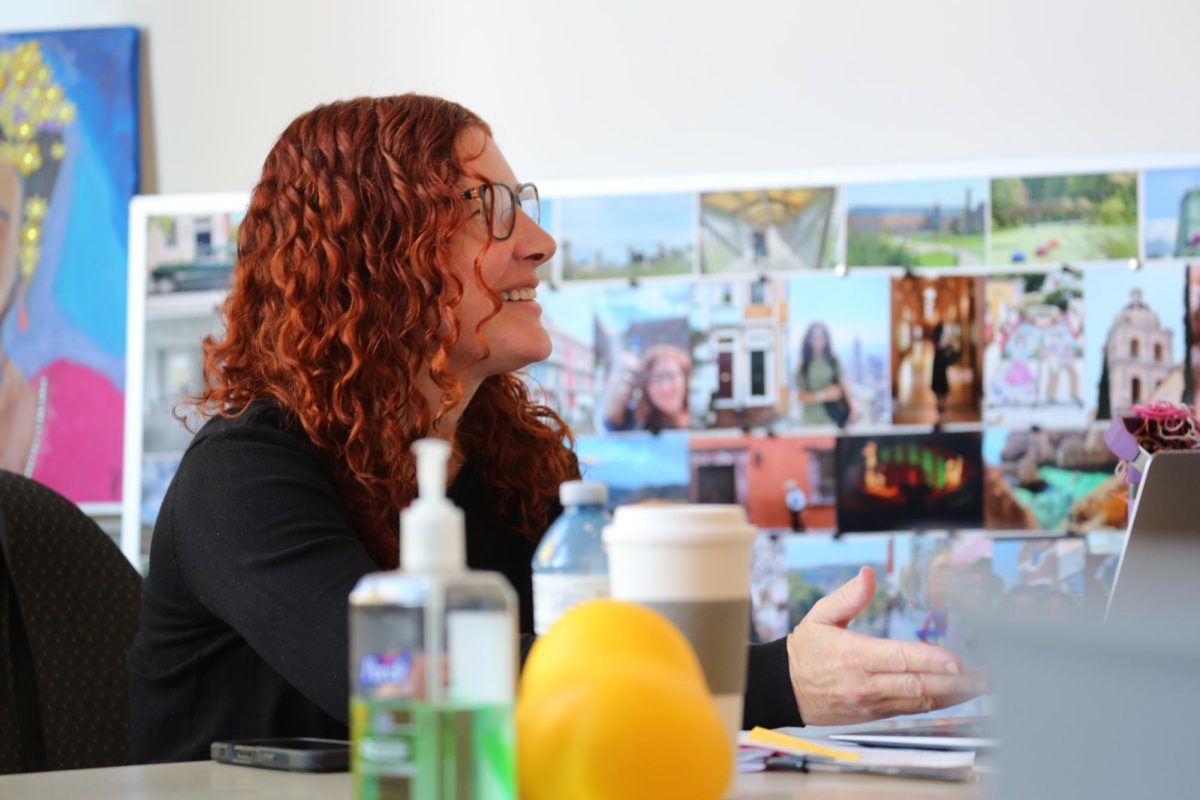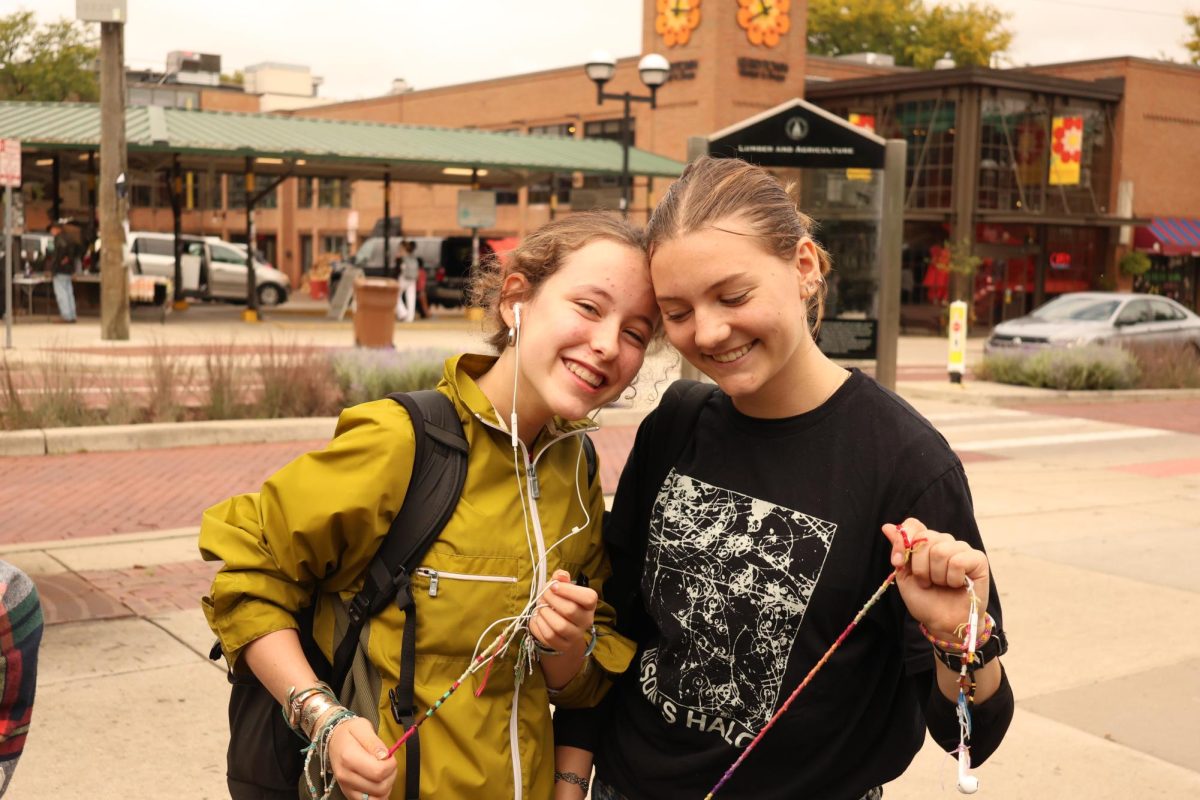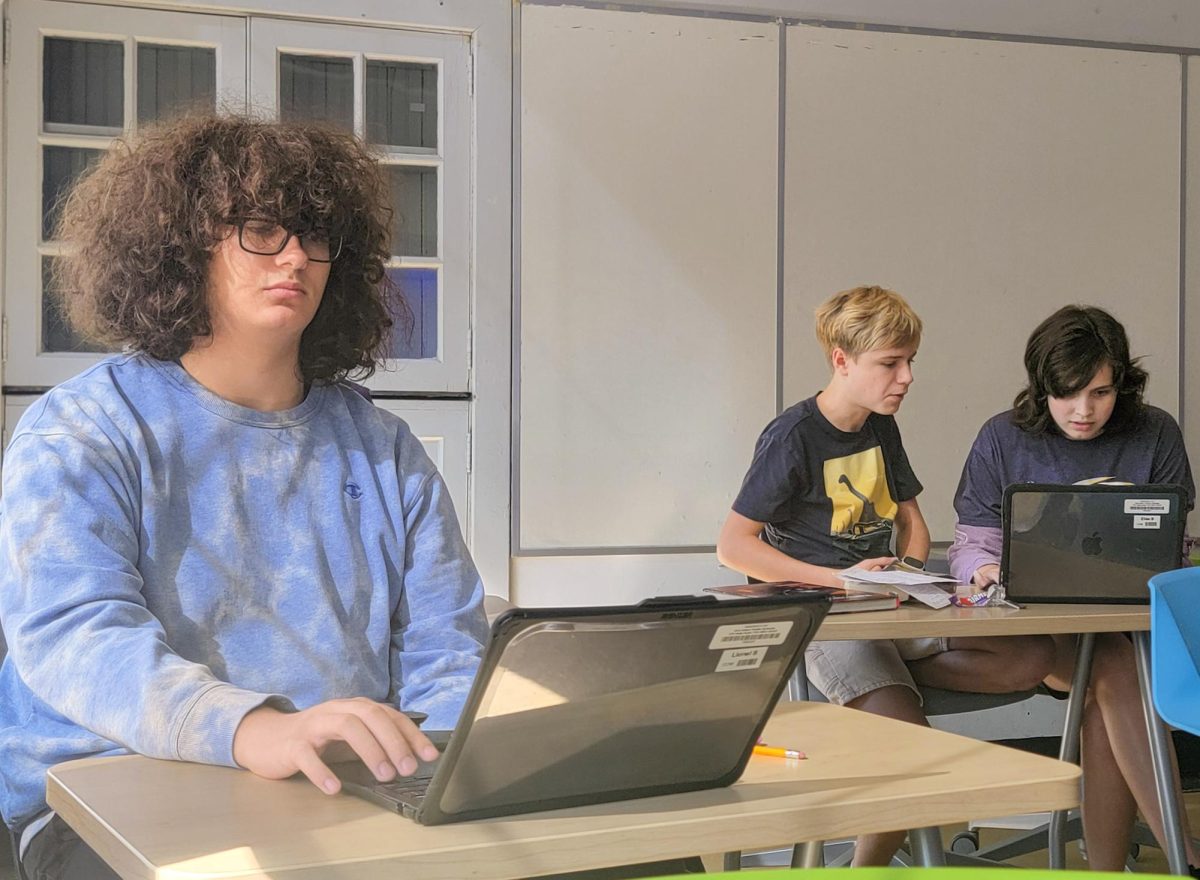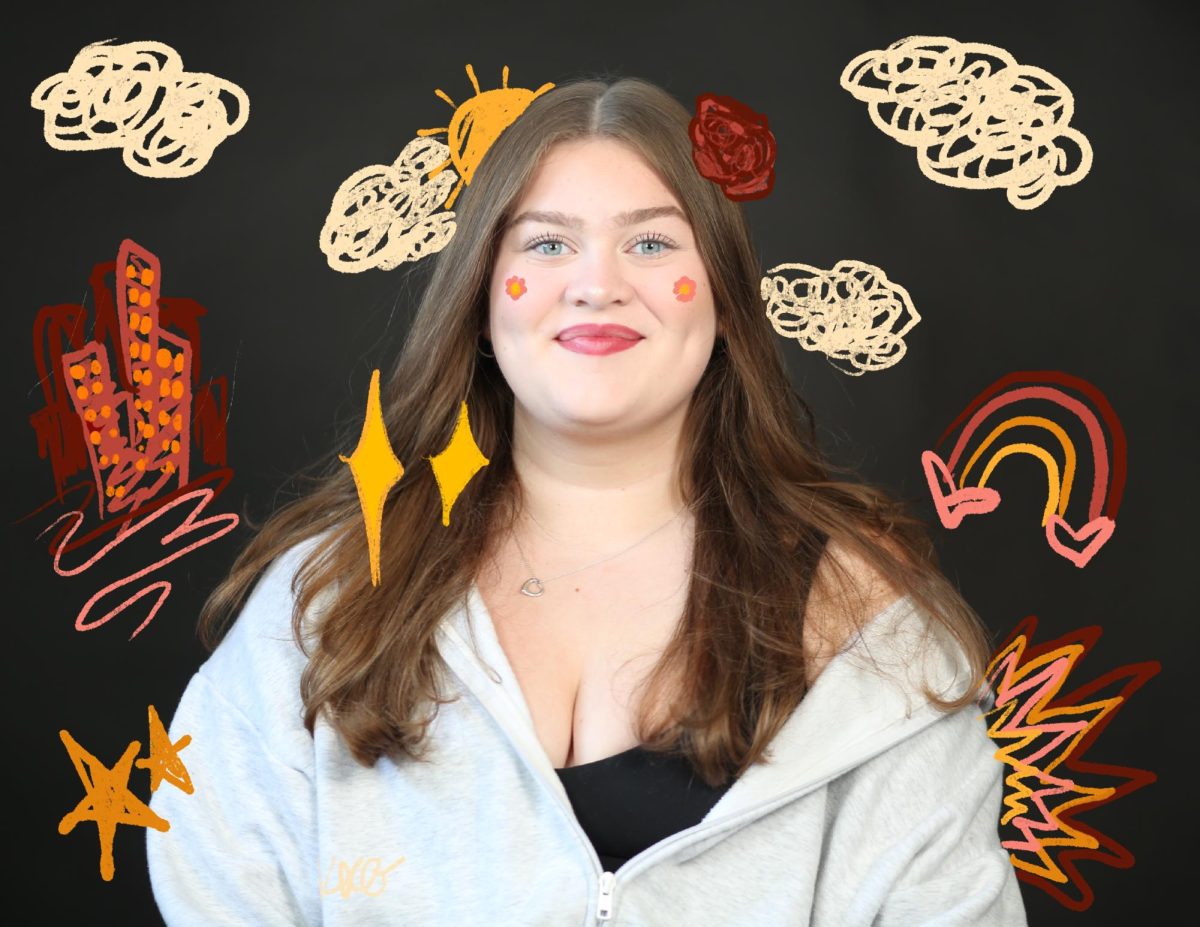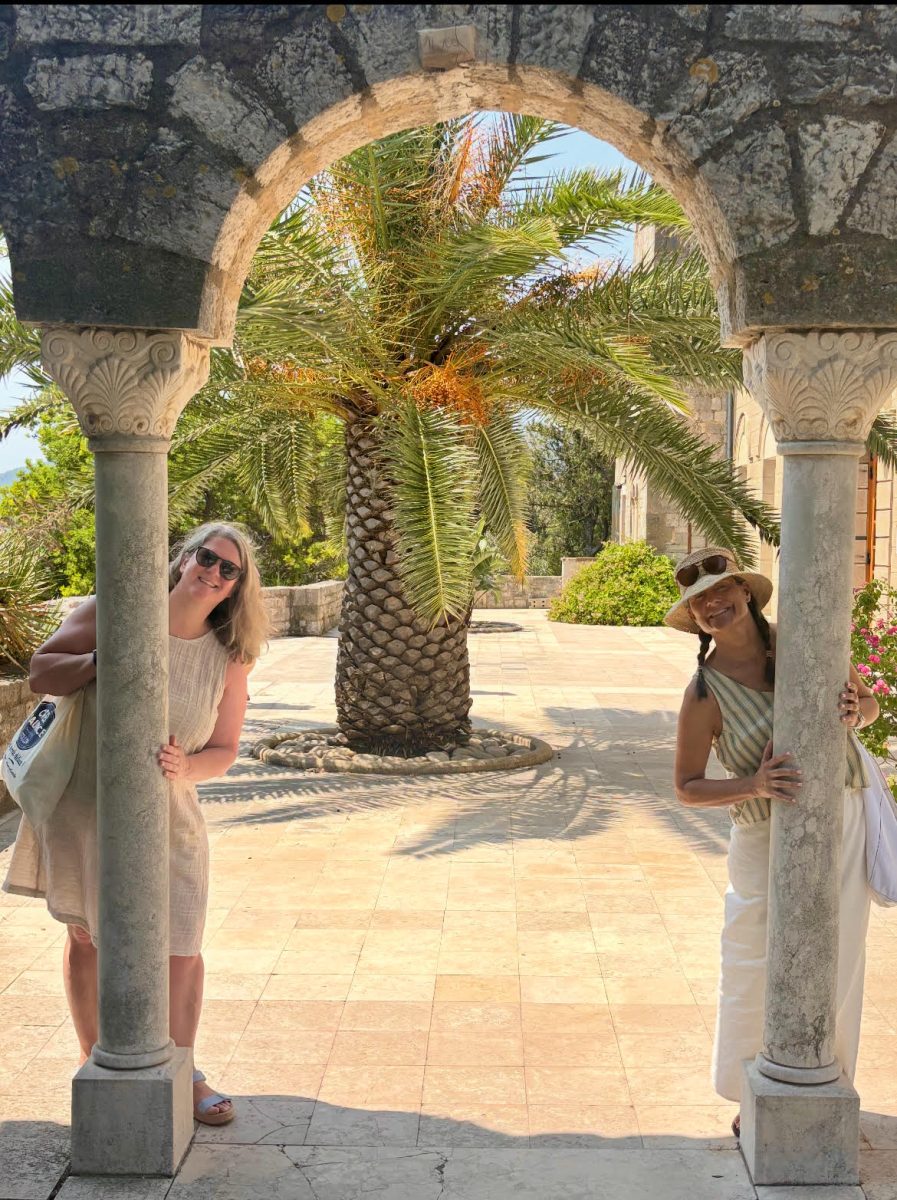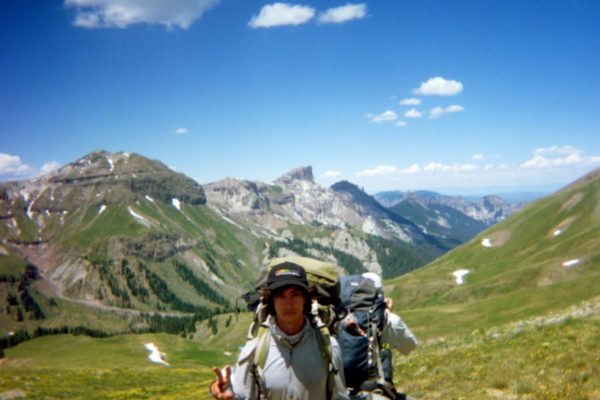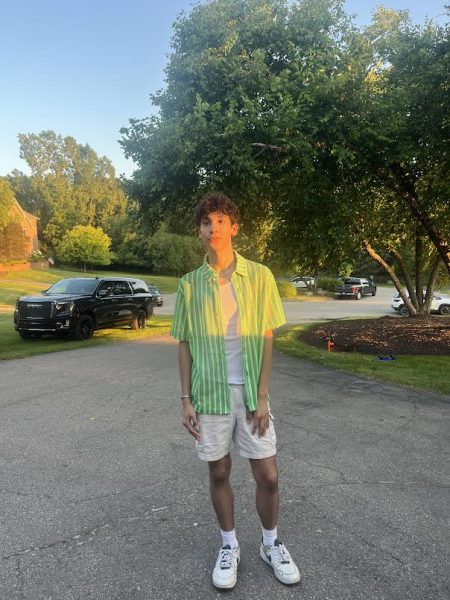In Sean Eldon’s Philo Lit class, the unknown takes center stage. The study of philosophy is the art of asking big questions, many of which don’t have definite answers.
The full title of Philo Lit is Philosophical issues in literature. This means it strays from the typical methods of philosophical study, choosing to view the big questions not through pure analysis but through a deeper lens of stories and metaphors. Despite pulling from sources from many time periods, some more modern than others, the essential ideas in all of Philo Lit’s texts date back to the ancient world.
For Eldon, context is everything, and in order to answer the important questions, he feels you have to first understand how they came to be asked. In room 305, Philo Lit students explore the history of philosophy, building their own philosophical foundations on readings like Plato’s Cave, Oedipus Rex and The World’s Wife. Through having conversations with philosophical works and inviting dialogues with their authors, Eldon and his students have started to unpack some of the biggest mysteries throughout history.
“What’s a meaningful life? How do we know that we’re living a meaningful life? How do we know that we’re doing well by others?” Eldon asked. “Those are some of the types of questions we ask of texts like ‘Oedipus’ and ‘Hamlet’ and ‘The Stranger’.”
For students in Philo Lit, these texts serve as ways to access obscure concepts. When examining meaning in reality becomes difficult, literature presents an alternative, often simplified reality to analyze from an overhead perspective.
In Philo Lit, the day starts off with a general read of the room. For Eldon, creating a comfortable environment is paramount. He asks each student what they’ve been doing recently, helping them bring their lives into the classroom. Talking about mundane things like movies and football games helps to set up a comfortable environment, testing the waters before diving into the day’s texts. As they start asking questions, Eldon uses his own experiences and questions to provide his students with a broader perspective.
“ I have a foundation — an academic foundation and a personal foundation. I think for all the major questions we asked, what I mean by foundation in this case is that I’ve thought about these questions in my own life, and I’ve also thought about these questions in the specific books that we read,” Eldon said. He uses these foundations to help him impart knowledge and guide his students.
“I’ve done a lot of reading, and I listen to philosophy podcasts and I’ve taken philosophy classes where we use literature as an entry point for thinking about these ideas,” Eldon said. “If you ask, for example, ‘What does it mean to live a meaningful life?’ Not only is it a hard question, but it’s a question that is going to require you, on some level, to ask, ‘What does it mean if life doesn’t have meaning?’ And that can really be personally destabilizing and make you uncomfortable.
This potential for discomfort is part of what makes the lens of literature so useful for Eldon’s class. “One of the ideas is that by asking these questions of literature, rather than just of yourself, that we can take some risks and find some risky answers,” Eldon said. “Because at the end of the day, these are fictional characters. They’re not real, right? If we ask too many of these questions of ourselves too quickly, it can be really overwhelming. So I think that that’s one of the ways that the questions drive the class — by virtue of giving us permission to take some risks that might feel uncomfortable in real life.”
Philo lit is not a traditional english class, nor is it taught like one. Getting deeper into the topics is an essential part of exploring philosophy, and no stone can be left unturned. “I think it comes down to how it’s being taught,”said Klava Alicia, a Philo Lit student. “And I think Sean really goes in depth about all perspectives in Philo lit and he really explains the topics in depth. I don’t know how to say it, but he gives more background on it than just ‘Oh, this is what happened.’ He explains why it happened.”
For Eldon, it can be hard to know the best approach towards such big ideas. To him, before you tackle the big questions you have to acknowledge that you don’t have the answers. Eldon thinks that people often pretend like they do, and fail to realize that everyone is searching for different things. “You just have to encourage people to trust their own intuition, experience, perception, knowledge, throw it in a mixing bowl and come up with something that feels meaningful,” Eldon said. “So I think it can be difficult with students who are very concrete, who are very uncomfortable in ambiguity, with students who expect there to be an answer.”
This difficulty can even become hurtful, for students who take answers personally. When the answers they find in Philo Lit don’t line up with their existing worldview, they can feel destabilized. For some students, however, answering these big questions is the opposite of hurtful.
“I definitely believe, and this is my own personal opinion, but I believe that we can’t see true philosophy or true knowledge or truth or enlightenment without others,” Kaylie Peters said. “There’s an allegory that my dad had for a very long time that true light, or like the world, is like a prism, and that when a light hits it like truth. Or again, if there is such a thing, pure truth. It hits the prism and it showers into many lights, different colors, different shapes.”
For Peters, Philo Lit helps to explore these lights and colors. “Without knowing all of those lights, we can’t know what truth is,” Peters said. “And I find that really true in my own life. And so I try to understand how people see the world and see their own life, their own perspectives, and by understanding that by piecing each little piece together, I can fully understand the truth.”



